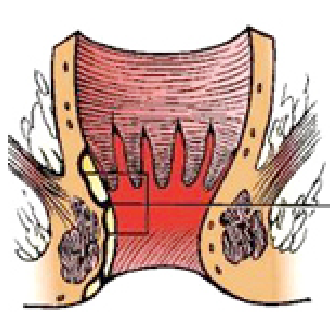An anal fistula is when a small, tunnel-like structure (tract) develops between the back passage (anal canal) and the opening to the outer skin surrounding the anus. On the surface of the skin around the anus, one or more of the fistula ends may be seen as holes, which tunnel down into the back passage.
There are many different types of fistula, ranging from a simple, singular tract to more complicated fistulas which can be made up of several tracts that branch out. Some fistulas can be connected to the muscles responsible for controlling your bowels.
An anal fistula usually develops after an anal abscess (a collection of pus) bursts. It can also form when an abscess has not been completely treated.
They can also be caused by a condition that affects the intestines, such as irritable bowel syndrome or Crohn’s disease.
Most anal fistulas require surgery, as they rarely heal if left untreated. However, complications are rare, and in most cases, a fistula will not develop for a second time.


